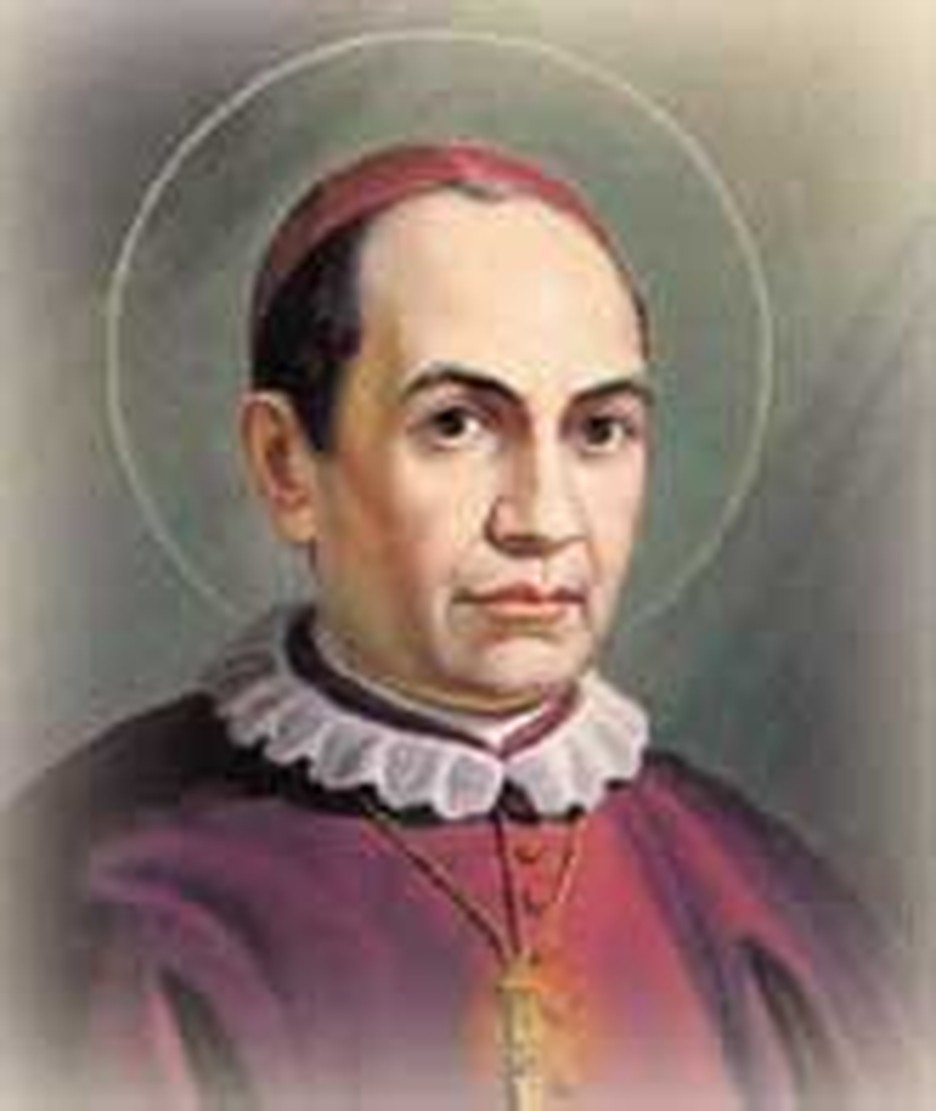
"I was never much for sleep," said Anthony Claret. It was as well. Although his health was not the best, he worked extraordinarily hard all his life. For example, he often heard confessions 15 of the 24 hours in a day. When made bishop of Santiago, he traveled half the island of Cuba on foot or mule three times, visiting every parish. He seemed born for work.
Claret was born into a family of Spanish weavers. A passion for Christ's work possessed him at a young age. Nonetheless, his father required him to labor in mills, so he cheerfully obeyed, believing that when God was ready for him to become a priest, he would arrange the details. In his spare time he prepared for his vocation, learning Latin. He most wanted to become a Carthusian monk, but his spiritual advisor steered him from it, since his health was not up to the rigorous austerities of the order. An active, not a contemplative life, was to be preferred.
Again Claret took this as the advice of God. For ten years he evangelized in Spain, preaching and holding retreats. His zeal attracted other priests and led him to found a religious order, the Missionary Sons of the Immaculate Heart of Mary, commonly known as the Claretians.
In 1850 Claret was appointed an archbishop to Cuba. There he spent a large part of his own money to create a ranch for poor children who otherwise had to beg or resort to crime. They could stay and be educated and work an hour a day to maintain the ranch. He taught agriculture to the poor and urged them to diversify their crops so they wouldn't be under the total domination of the sugar growers; and he established credit unions so the poor could control their own economic destinies. He smashed racial barriers by uniting thousands of inter-racial couples in marriage who would otherwise have lived only in concubinage.
This infuriated racists, for the corrupt laws expressly forbade marriage between the races. Slavery was still in existence. One man, whose mistress turned to a pure life, attacked and seriously injured Claret. Two homes which offered shelter to Claret were burnt to the ground in retaliation. Only Claret's intervention saved the arsonist from the death penalty.
In 1857 Claret became confessor to Isabelle II and returned to Spain. Even then he did not rest on his laurels. Nor could he, for his position at court roused jealousy and the liberal press smeared him. In the revolution of 1868 Claret was exiled along with the queen.
On this day, October 24, 1870 he slipped into a well-earned eternal rest. In addition to the activities mentioned above, he had bettered the education of Cuba, preached 10,000 sermons and written 200 books or pamphlets.
Bibliography:
- Adapted from an earlier Christian History Institute story.
- Butler, Alban. Lives of the Saints. Various versions.
- Macerlean, A.A. "Ven. Antonio María Claret y Clará." Catholic Encyclopedia. New York: Robert Appleton, 1914.
- Delaney, John J. Saints for All Seasons. New York: Doubleday, 1978.
Last updated July, 2007.







